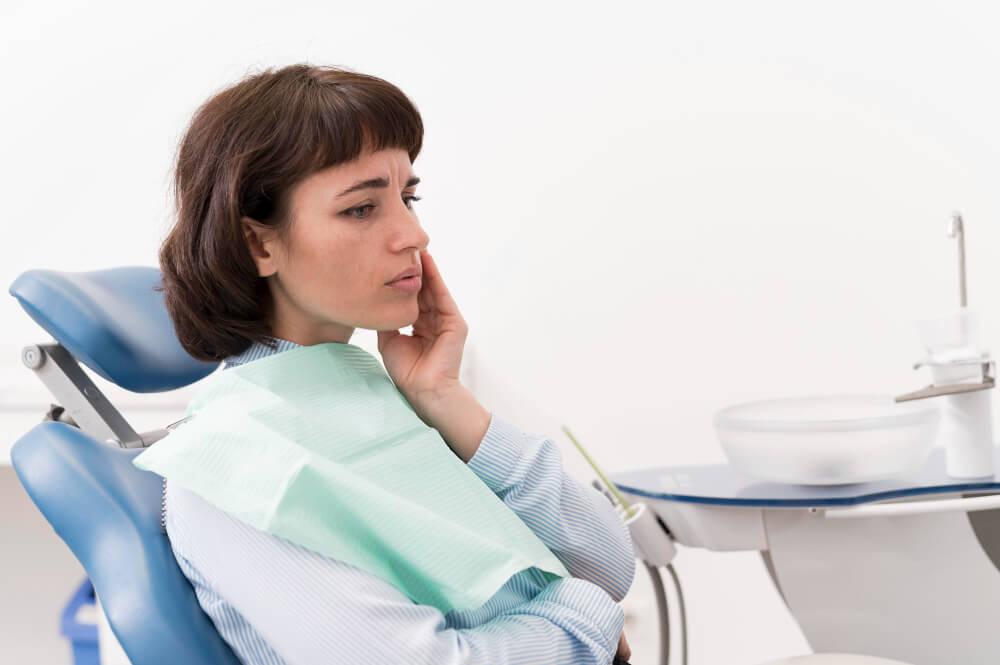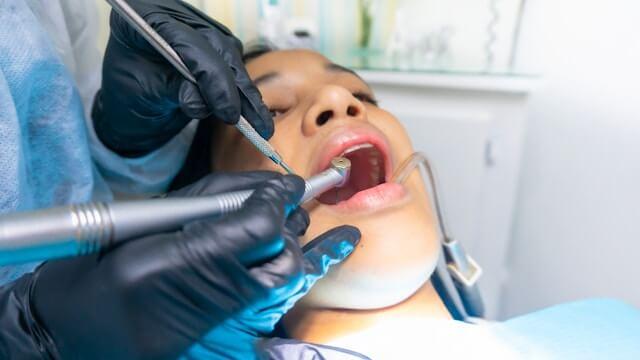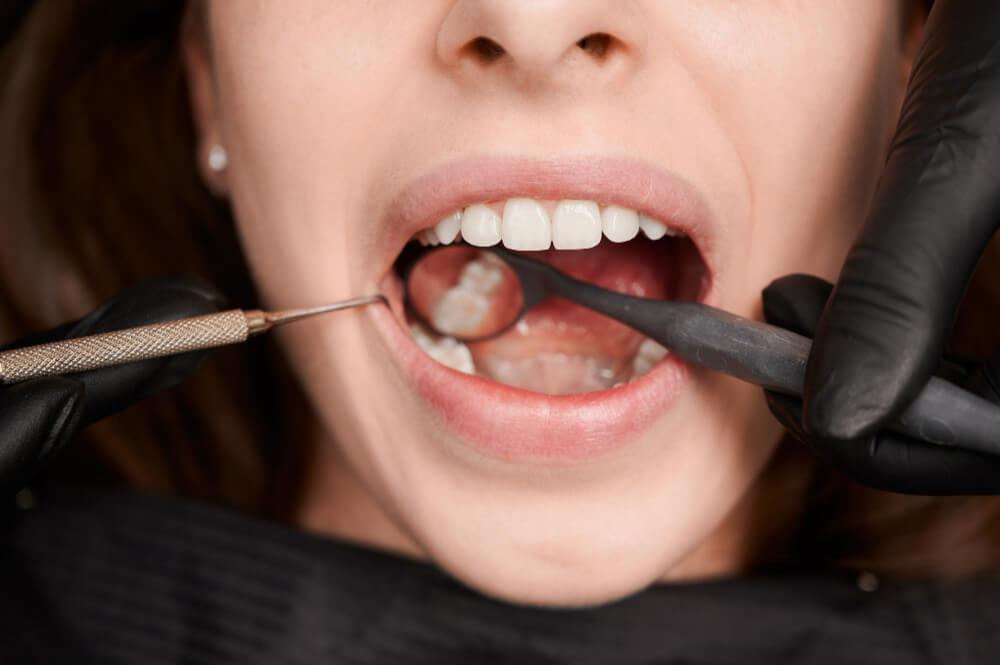Appointment


A dental abscess can be an excruciatingly painful condition that requires prompt attention and proper care. While seeking professional dental treatment is crucial, there are several self-care measures individuals can take to alleviate symptoms, manage discomfort, and promote healing at home. In this comprehensive guide, we will delve into effective self-care strategies for dental abscesses, highlighting tips, remedies, and preventive measures.
A dental abscess occurs when there is a bacterial infection in the tooth or surrounding gum tissue. This infection leads to the formation of a pocket of pus, causing pain, swelling, and inflammation. Common causes of dental abscess include poor oral hygiene, untreated cavities, and gum disease.
Symptoms of a dental abscess may include the following:
If left untreated, dental abscesses can lead to serious complications, including the spread of infection to other parts of the body.
Diagnosing a dental abscess involves a dental examination and sometimes X-rays to assess the extent of the infection. Treatment typically includes:
Drainage, performed through a small incision, is crucial for removing pus and reducing pressure within the abscessed area, facilitating the body's natural healing process. Antibiotics are often prescribed to target the underlying infection and prevent its spread, aiding in the complete eradication of bacteria and reducing the risk of complications.
Root canal therapy is a common treatment option for abscesses that have affected the tooth's pulp, involving the removal of infected tissue and sealing the canal to prevent reinfection. In severe cases where the tooth cannot be salvaged, tooth extraction may be necessary to prevent further spread of infection and alleviate symptoms.
Over-the-counter pain relievers and cold compresses can provide temporary relief from discomfort while undergoing treatment. Early intervention is vital to prevent potential complications, so seeking prompt dental care is essential if a dental abscess is suspected.
While professional treatment is essential for managing a dental abscess, there are self-care measures you can take to alleviate symptoms and promote healing at home:
Ease discomfort by using non-prescription painkillers like ibuprofen or acetaminophen to alleviate pain and swelling linked to the dental abscess. Using a cold compress on the impacted area can also provide temporary relief from discomfort.
Keep your oral health in check by softly brushing your teeth two times daily using a toothbrush with soft bristles and fluoride toothpaste. Floss daily to remove food particles and plaque from between teeth and along the gumline. Rinsing your mouth with a warm saltwater solution several times a day can help reduce inflammation and promote healing.
Adjust your diet to include soft, easy-to-chew foods that won't irritate the abscess. Avoid hard, crunchy, or chewy foods that can exacerbate discomfort. Stay hydrated by drinking plenty of water throughout the day to keep your mouth moist and aid in the healing process.
Explore natural remedies such as the following:
Containing eugenol, an anesthetic, and antibacterial agent, clove oil can relieve toothache and inflammation in dental abscesses. Apply a small amount directly to the affected area or mix with a carrier oil like olive oil for application.
With antimicrobial and anti-inflammatory properties, garlic is a popular remedy for dental abscesses. Apply crushed garlic directly to the affected area or chew on a clove to release its healing compounds.
A warm salt water rinse reduces inflammation, eases pain, and aids healing of dental abscesses. Dissolve half a teaspoon of salt in warm water, swish around the mouth for 30 seconds, and repeat several times daily.
Peppermint and chamomile teas offer natural pain relief and anti-inflammatory benefits. Brew as directed, cool slightly, and swish around the mouth or use as a mouthwash.
Using a cold compress numbs pain and reduces swelling in dental abscesses. Wrap ice cubes in a cloth and apply to the cheek near the affected area for 15-20 minutes at a time. Repeat as needed for relief.
Refrain from smoking or using tobacco products, as they can hinder the healing process and increase the risk of complications. Limit consumption of sugary foods and beverages, as they can contribute to tooth decay and worsen dental abscess symptoms.
By incorporating these self-care measures into your daily routine, you can effectively manage a dental abscess at home while awaiting professional treatment. However, it's essential to seek prompt dental care if symptoms persist or worsen to prevent further complications and ensure optimal oral health.

To prevent dental abscesses and related complications:
By incorporating these prevention strategies into your daily routine, you can significantly reduce your risk of developing dental abscesses and other oral health problems. Remember that maintaining good oral hygiene and making healthy lifestyle choices are essential for preserving your smile and overall well-being.
While self-care measures can provide relief from dental abscess symptoms, it's essential to seek professional help if symptoms persist or worsen. Contact your dentist if you experience:
At Al Care Dental, we prioritize preventive dental care to help you avoid the discomfort of dental abscesses. Our experienced team offers comprehensive check-ups, cleanings, and personalized treatment plans to maintain your oral health. With our approach, you can say goodbye to dental abscesses for good.
We emphasize the importance of proper oral hygiene, including brushing, flossing, and a balanced diet, to prevent dental abscesses. Additionally, we provide custom-fitted mouthguards for those at risk due to contact sports or teeth grinding. At Al Care Dental, we're committed to your well-being and offer tailored solutions to meet your dental needs.
Take proactive steps towards a healthier smile by scheduling a consultation with Al Care Dental today. Let us help you prevent dental abscesses and enjoy optimal oral health.

Dental abscesses can cause significant pain and discomfort, but effective self-care measures can help manage symptoms and promote healing. By following proper oral hygiene practices, making dietary adjustments, and utilizing home remedies, you can alleviate pain and prevent complications associated with dental abscesses.
However, if symptoms persist or worsen, it's crucial to seek professional dental care promptly to prevent further complications. Remember, dental abscess self-care is essential for maintaining oral health and overall well-being.
Stress can weaken the immune system and increase susceptibility to infections, including dental abscesses. Chronic stress may also lead to teeth grinding or clenching, which can damage tooth enamel and increase the risk of abscess formation.
While maintaining a balanced diet is crucial for oral health, certain dietary supplements may also support immune function and reduce the risk of dental abscesses. Vitamin C, for example, plays a vital role in collagen production and immune function, which can aid in preventing oral infections.
Poor posture, particularly when sitting for long periods with the head forward and shoulders slouched, can increase pressure on the jaw and lead to teeth grinding or clenching. This repetitive behavior can wear down tooth enamel and create conditions conducive to dental abscess formation.
We’re glad you chose our practice! Please take some time to learn about how to prepare for your first appointment.
Find Out more